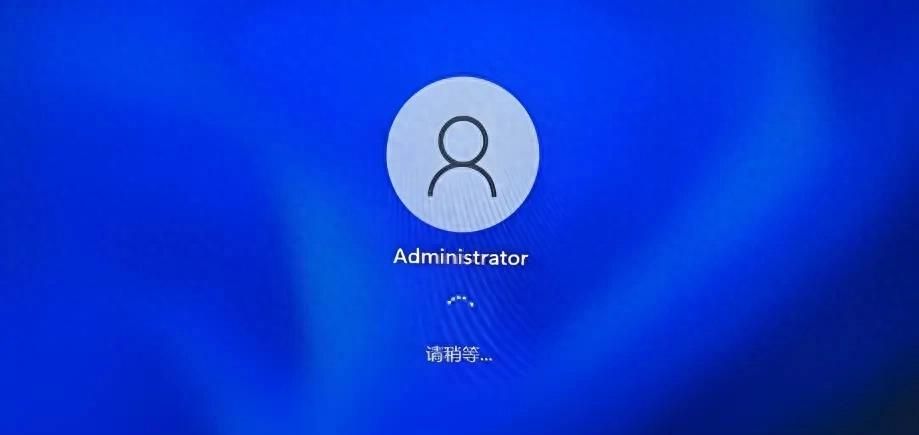本文为原创短篇故事,内容纯属虚构,如有雷同,纯属巧合,请勿过度理解。感谢!
72年,我为躲避饥荒嫁到邻村,丈夫待我很好,可我总梦见家乡的河
01
又是一条河。
浑黄的,湍急的,在梦里无声地奔流。河对岸,是我娘瘦小的身影,她冲我招手,嘴巴一张一合,我却什么也听不见。
我急得想哭,拼了命地往前跑,想趟过去,可那河水像有千钧之力,一次次把我推回岸边。
“秀英,秀英,醒醒。”
一双粗糙温暖的大手轻轻拍着我的背。我猛地睁开眼,窗外天色还是墨蓝的,只有一线微弱的晨光。
身边的男人,陈明德,我的丈夫,已经坐了起来,正忧心地看着我。他额上的皱纹,像老树的年轮,刻满了五十多年的风霜。
“又梦见那条河了?”他问,声音带着刚睡醒的沙哑。
我点点头,胸口还闷得慌。
他叹了口气,没再多问,只是起身下床,给我倒了杯温水。“喝点水,润润嗓子。”
水是温的,他总是半夜起来,把暖水瓶里的水灌好,这样我早上起来就有温水喝。这个习惯,从我们结婚第二年起,雷打不动。
我握着搪瓷杯,指尖传来踏实的温度。
五十多年了,从我18岁嫁到潭溪村,嫁给陈明德,这个梦就没断过。
梦里的河,是我老家白马河。河对岸,是我再也没能回去的娘家。
02
1972年,我们那片遭了百年不遇的大旱,地里颗粒无收。
起初是吃糠咽菜,后来是啃树皮,挖草根。村里饿得浮肿的人越来越多,夜里总能听见谁家的哭声。
我爹坐在门槛上,一袋旱烟能抽上一天,眉头拧成个疙瘩。我娘把家里最后一点黑面疙瘩掰成两半,一半给我,一半给小我五岁的弟弟。
她和我爹,只喝那清得能照见人影的米汤。
我饿得头晕眼花,看着弟弟狼吞虎咽,眼泪在眼眶里打转。
一天下午,邻村的王媒婆踏进了我家的门槛。
她一进门,眼睛就亮晶晶地在我身上打转,嘴里像抹了蜜:“老林家的闺女,真是越长越水灵了。”
我娘把她拉到一边,低声说着什么。我只隐约听见“潭溪村”、“陈家”、“壮实”、“能干活”、“彩礼是五十斤红薯干和二十斤玉米面”……
五十斤红薯干,二十斤玉米面。
在那个年代,这几乎等于一条人命。
我爹一言不发地走出屋,蹲在院墙角,一根接一根地抽烟。烟雾缭绕里,我看不清他的脸,只看到他佝偻的背,像被一块巨石压着。
晚上,娘拉着我的手,眼泪一颗颗掉下来,滚烫。
“秀英,是爹娘对不住你。可家里……真的揭不开锅了。你弟弟还小……”
我攥着娘布满老茧的手,指甲掐进肉里,却感觉不到疼。我什么都没说,只是点了点头。
我知道,我的命,要被换成一家人的口粮了。
出嫁那天,没有吹吹打打,一辆借来的板车就是婚车。车上放着一床旧被褥,还有王媒婆说的那些红薯干和玉米面。
我爹埋着头,一声不吭地在前面拉车。我娘跟在后面,一路哭,一路往我手里塞那两只煮得半熟的鸡蛋。
“到了那边,好好过日子,别惦记家里。”
板车到了村口,要拐上另一条路了。我回头,看见我爹停下车,转过身,第一次正眼看我。
那个一辈子没掉过一滴泪的男人,眼眶红得像要滴出血。
他没说话,只是朝我深深地弯下了腰。
那一躬,像烙铁一样,烫在了我的心上,五十多年,从未冷却。
0spired by memories of the past, she shares a story with him – not the one of hardship, but a funny tale from her own childhood by the river, a story she'd almost forgotten. It's a small act, but it's a profound shift. She's no longer just a recipient of Mingde's care; she is actively participating in building their shared emotional world.
Mingde, a man of few words, listens intently. At the end, a rare, gentle smile spreads across his face. “That river of yours,” he says softly, “sounds like a nice place.”
It's a simple sentence, but for me, it's everything. For the first time, someone from my new life is looking at my past not as a burden or a source of sadness, but simply as a part of me.
That night, for the first time in months, I don't dream of the river.
07
The decision to go back was made on a bright autumn morning.
We had saved a little money, and Mingde had sold a basket of meticulously woven bamboo chairs he’d stayed up nights making. He counted the crumpled bills, smoothed them out, and placed them in my hand.
“Go back and see them,” he said. “Buy some things for your folks. I'll go with you.”
My hand trembled as I held the money. It wasn't just cash; it was his sleep, his sweat, his silent support.
The journey back felt both impossibly long and incredibly short. As we got closer, my heart pounded like a drum against my ribs. What would I find? Had things gotten better?
When our old village finally came into view, my breath caught. It was quieter, sadder than I remembered.
We walked to my family’s little courtyard. The door was ajar. I pushed it open, and the first thing I saw was my mother, sitting on a small stool, mending my brother’s torn clothes. She was thinner, her hair streaked with more grey.
“Ma,” I called out, my voice choked.
She looked up, stunned. For a second, she didn't recognize me. Then, her eyes widened, and tears streamed down her face. “Xiu… Xiu Ying?”
My father and brother rushed out from the house. My brother, who was a scrawny kid when I left, was now a lanky teenager, his eyes full of a shyness I didn't recognize.
My father just stood there, his lips trembling, unable to speak.
Mingde, who had been standing quietly behind me, stepped forward. He respectfully greeted my parents, then silently began unloading the bags of grain and cloth we had brought.
That afternoon, I walked alone to the banks of the Baima River.
It was right there. The river from my dreams. But it was different. It wasn't a roaring, impassable torrent. It was just a river, flowing quietly under the afternoon sun, the water lower than I remembered, revealing a bed of smooth, grey stones.
It was… ordinary.
Standing there, I finally understood. The river in my dreams wasn't the river itself. It was the chasm of hunger, the fear of separation, the guilt of a daughter who had to leave to survive. It was the embodiment of everything I had lost and couldn't go back to.
Mingde found me there. He didn't say anything, just stood beside me, his presence a solid, comforting anchor.
“It's not as wide as I thought,” I said, more to myself than to him.
He reached out and took my hand. “That's because you've crossed it now.”
08
Returning to Tanxi Village felt different this time. The air seemed lighter, the path to our little house felt shorter. I was no longer a girl who had been traded for grain; I was a wife coming home with her husband.
That visit didn't magically solve my family's problems, but it mended something inside me. The raw, open wound of homesickness began to scar over, turning into a dull, manageable ache.
Life, like a river, flows onward.
The following spring, I was pregnant. The nausea and fatigue were overwhelming, but my heart was filled with a strange, fierce joy. This was my child, mine and Mingde's. A new root, taking hold in this new soil.
When our son, Jianhua, was born, Mingde held him in his arms, his big, rough hands looking impossibly gentle. He looked at me, his eyes shining with a light I’d never seen before. “Xiu Ying,” he said, his voice thick with emotion. “Thank you.”
Years passed. One child became two. The little mud-brick house was filled with the noise and laughter of our son and daughter. We worked, we saved, we watched our children grow. The struggles were still there – a bad harvest, a sick child, the constant need to be frugal – but we faced them together.
The dream of the river still came, but it was changing. The water was calmer. My mother's face on the other side was clearer, smiling. Sometimes, in the dream, I'd see Mingde standing beside me on the bank.
One year, my brother came to visit, bringing news that my father had passed away peacefully in his sleep. My mother, he said, was old but healthy. He brought me a small, worn wooden box. Inside was a lock of my father’s hair and a letter from my mother.
The letter was short, the handwriting shaky. It said: “Xiu Ying, don't worry about home. You have your own family now. Live your life well. That's all we ever wanted.”
That night, I held the box and cried silently in Mingde's arms. It was a cry of grief, but also of release.
09
Time rushes by when you’re busy living. In the blink of an eye, our hair turned grey and our children had children of their own.
Our son, Jianhua, had made a life for himself in the city. A few years ago, his company offered him a promotion, but it required moving to a city even farther away. He came back to ask for our opinion, his face a mask of conflict.
“It's a great opportunity,” he said, “but it's so far. I'd hardly be able to come back. And you and Dad are getting older…”
He was torn between his future and his duty, between his ambition and his roots.
I looked at my son, at his worried face, and I saw a reflection of myself, decades ago, standing at a different crossroads.
That evening, I sat with him in the courtyard, under the same sky I had looked up at as a lonely young bride.
“Jianhua,” I began softly, “let me tell you about a river.”
I told him everything. About the famine of '72, about leaving home, about the recurring dream that had haunted me for half my life. I told him about my first trip back, and how I realized the river wasn't an obstacle, but a memory.
“For years,” I told him, “I thought home was the place I left behind. I thought I had lost it forever. But later I learned, home isn't just a piece of land or a house. Home is where you build a life. It's the people you love, the meals you share, the children you raise. Your father and this village, they became my home. You and your sister, you are my home.”
I put my hand on his. “Don't let your old home become a chain that holds you back. Go. Build your own life. And remember, wherever you build it, that is your home. And as long as you have us in your heart, you'll never be far.”
That's the most important lesson a river ever taught me: it flows, it moves, but it never forgets its source.
10
Now, I am an old woman. My steps are slow, my memory sometimes fails me, but the warmth of Mingde's hand is as familiar as my own breath.
We sit on the porch in the evenings, watching the sun set behind the mountains, painting the sky in shades of orange and purple. Our grandchildren's laughter echoes from the yard.
Last night, Mingde asked me the old question. “Did you dream of the river again?”
I smiled and leaned my head on his shoulder. His shirt smelled of sunshine and clean soap.
“I did,” I said.
He stiffened slightly, his old worry resurfacing.
“But it was different this time,” I continued. “In the dream, I was a little girl again, playing by the water. The sun was warm. And you were there, an old man with white hair, sitting on a rock, watching me and smiling.”
He was silent for a long moment. Then, his arm wrapped tighter around me.
“Good,” he murmured into my hair. “That's good.”
I closed my eyes. For fifty years, I dreamed of a river that separated me from my past. Now, I understand. Life is not about choosing between two riverbanks. It's about learning that all the streams of your life—the ones you were born by and the ones you discover—eventually flow together, into a vast, quiet sea.
And in that sea, you are finally, completely, home.




















暂无评论内容